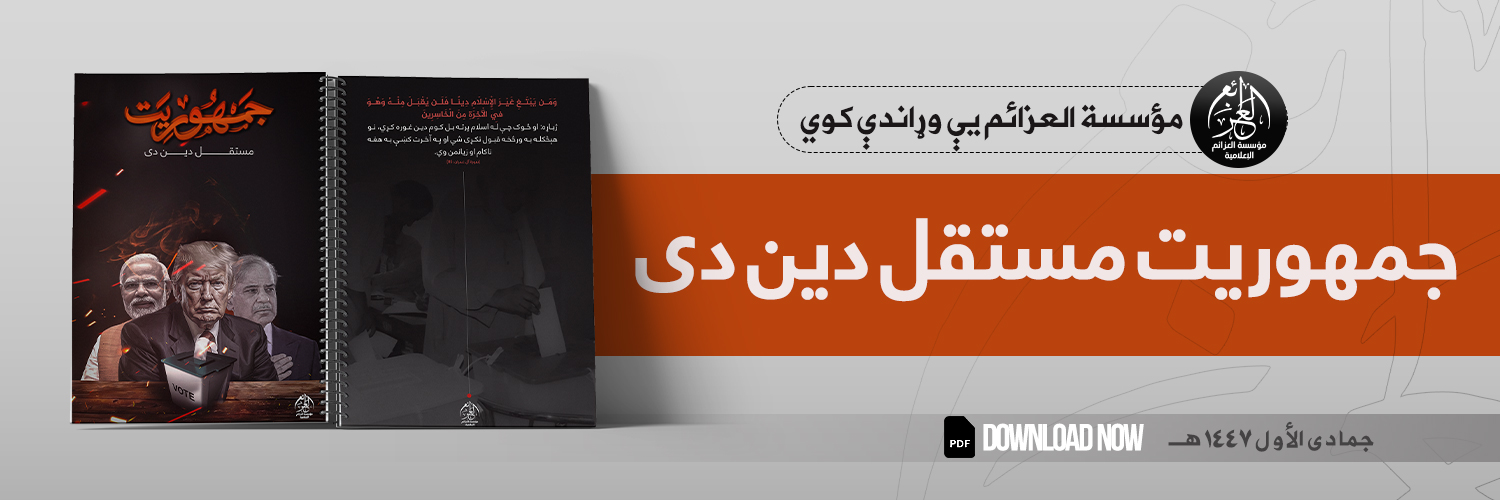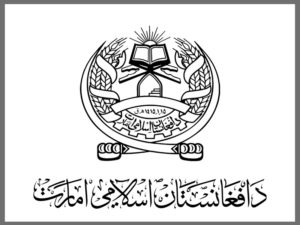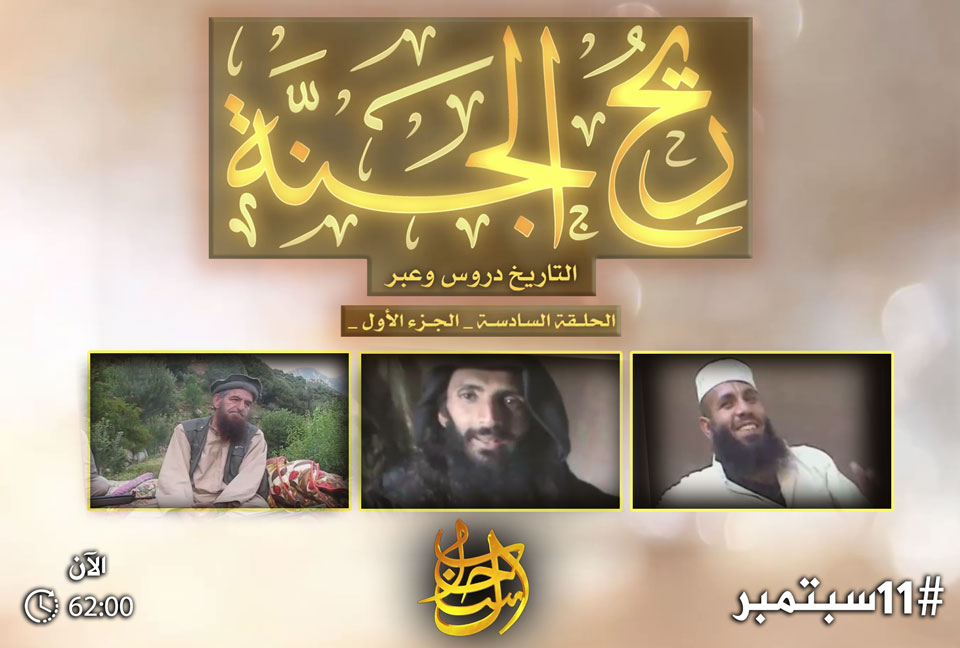
Somali:
English:
______________
Source: Telegram

Somali:
English:
______________
Source: Telegram
تواصل معي عدد من إخواني الفضلاء من عامة الجنود ومن عامة الناس يتساءلون:
ألا يُعتبر هذا الدخول في التحالف من باب موالاة الكافرين على المسلمين، والذي هو ناقض من نواقض الدين؟
الجواب:
أولاً: يجب أن يُعلم أن مسائل الكفر والإيمان من المسائل العظام التي كان كبار أئمة السلف يتهيبون من الخوض فيها لشدّتها ودقّتها، لما يترتب عليها من أحكام جسيمة تتعلق بالدين والدماء والأعراض. وهذه المسألة من النوازل المعاصرة التي رجعت فيها الدولة إلى العلماء، فاستفتتهم وأخذت باجتهادهم بعد النظر في الواقع والمآلات، وهذا هو المسلك الصحيح الذي يُؤخذ به في النوازل العامة.
ثانياً: يجب أن يُعلم أيضاً أن هذه المسألة ليست مسألة عادية، بل هي من باب الموازنات الكبرى التي تُقدّر فيها المصالح والمفاسد، ويُوازن فيها بين أيّ الضررين أخفّ، وأيّ الشرّين أقلّ.
وثالثاً: التصوّر الصحيح للمسألة أنها ليست في باب الإعانة والاستعانة ولا في باب الموالاة والتولي، فليست الصورة أن الدولة في بحبوحة من أمرها وفي تمام قوتها واستقرارها ثم قدّمت طلبًا رسميًا للانضمام إلى التحالف طوعًا!
بل واقع الأمر أن هذا التحالف قائم فعليًا منذ عام 2014، وقد مارس عمليات إنزال واعتقال وقتل داخل الأراضي السورية، فعدم الدخول لا يعني توقف عملياته أو انكفاؤه، وإنما الدخول فيه يخفف من آثاره وأخطائه، ويقلّل من ضرره، ويسهم في الحد من تغوّله، بل ويُمهّد مستقبلاً لانسحابٍ أمريكي أوسع من المنطقة، ويزيد من بسط سلطان الدولة وسيادتها على كامل التراب السوري.
فالصورة إذًا ليست إعانة للتحالف ولا استعانة به فضلًا عن الموالاة له، وإنما هي واقعٌ مفروضٌ قائمٌ، والدخول فيه يخفف ضرره ويقلّل شرره. ولو كان الأمر في سعةٍ وخيارٍ وطمأنينةٍ لما دخلت الدولة فيه أصلاً، ولَكفت بجيشها وقوّتها في دفع شرّ الدواعش عن المسلمين والمعصومين.
من يستقرئ صفحات التاريخ الإسلامي بتجرّدٍ وإنصاف، يجد أن الدولة الزنكية الناشئة حديثًا حين واجهت تمرّدًا من بعض فروع جيش السلاجقة المسلمين الذين بغوا عليها وصالوا ضدها، فأضعفوها لم يكن أمام عماد الدين زنكي رحمه الله إلا أن يُوازن بين المفسدتين، فاختار عقد تفاهمٍ مع الدولة البيزنطية لا إعانةً ولا تولياً بل درءًا لشرٍّ داخليٍّ أعظم،
وهذا الموقف التاريخي يُعدّ نموذجًا فقهيًا وسياسيًا مشابهًا من بعض الوجوه .
والله أعلم
________________
To inquire about a translation for this release for a fee email: [email protected]

بسم الله الرحمن الرحيم الحمد لله والصلاة والسلام على رسول الله وعلى آله وصحبه ومن والاه وبعد:
بعيدًا عن الضجيج والمزاودة، ومن باب وضع النقاط على الحروف حتى لا تلتبس الأمور في ظل التشويش والتخليط الذي يمارسه البعض ،
ونصيحةً للشباب حتى يعرف الحق من الباطل — لأن الأمر دين، وحتى لا يظن أن الصمت عجز والسكوت عي، ففي الجعبة الكثير ولذلك أوضح بعض النقاط فيما يلي إبراء للذمة وتبييناً للباحث عن الحق وردعاً للجاهل الحاقد المتمادي :
1- إنّ قضايا الولاء والبراء من أبرز المسائل التي أُثيرت عبر التاريخ الإسلامي بين الغلو والجفاء، وضل فيها خلق كثير،
وسبب الإشكال الدائم فيها هو الخلط بين مسائل الولاء ومسائل التعامل أو بين مسائل الموالاة والمعاملات وبسط هذا معلوم،
فليس كل تعاملٍ هو ولاء، ولا كل اتفاقٍ أو تنسيقٍ يعدّ موالاة،
فالعبرة في الشريعة بالمقاصد والمعاني لا بالألفاظ والمباني.
2- في طبيعة التعامل التحالف الدولي اليوم:
إنّ الحكم على الشيء فرعٌ عن تصوّره، فطبيعة التعامل المطروح اليوم في واقعه يأخذ شكل التنسيق والتعاون الأمني المعلوماتي ،
وليس تحالفًا عسكريًا مفتوحًا بالمفهوم الشرعي أو السياسي التقليدي، فضلاً عن كونه تبعية أو رضى أو إعطاء لمقاليد الطاعة والانقياد أو إقراراً لمخالفة شرعية بل هو إقرار بسيادة الدولة السورية واعتراف بها ونوع من التنسيق تستفيد منه بلا شك الدولة السورية في حربها التي تقوم بها أساساً على عدو صائل يشكل خطراً داهماً وفي دفعه مصالح مشتركة لا يمانع الشرع من تواردها واتفاقها.
3- لا بد من التأكيد من
أن المجاهدين في الشام كانوا الأسبق في قتال داعش والتبرؤ منها، وذلك قبل نشوء التحالف بزمن طويل، وقد خاضوا ضدهم معارك شرسة، وبذلوا فيها الكثير من التضحيات،
دفاعًا عن دينهم وأعراضهم وأموالهم، انطلاقًا من عقيدتهم وأوامر ربهم، ولم ينتظروا في ذلك إذنًا من أحد أو تنسيقاً مع أحد.
ولا يزالون إلى اليوم ماضون في قتالهم وردّ عدوانهم كلما ظهرت فتنتهم.
وقد كنا سابقاً وعندما كان التحالف يأخذ شكلاً عسكرياً واضحاً نُحذّر دائمًا من الخلط بين الاقتران والمزامنة في التوقيت بين قتال داعش عند الثوار وما يقوم به التحالف أنذاك، فالمزامنة لا تعني الاشتراك ولا التبعية،
ولنا في قتالهم مبرراتنا وأهدافنا ومنطلقاتنا الشرعية الخاصة، وهذا التزامن لا يضر شرعًا ولا يغيّر في الحكم شيئًا وهذا الأمر في نازلتنا الآن أبعد لأن الصورة الحالية تختلف كلياً عن الصور السابقة.
4-لقد ثبت بالوقائع والتجارب أن داعش كانت بلاءً على بلاد المسلمين، وسببًا رئيسًا في تدخل القوى الكبرى،
فحيثما وُجدوا كانوا ذريعة للتدخل الأجنبي ومطية للاختراق، ولهذا وجب النظر إلى المآلات والعواقب لا إلى الظواهر وحدها،
فالعاقل من يعتبر بنفسه وبغيره، ويقرأ نتائج الأمور قبل وقوعها، وقد ظهرت العديد من الفتاوى في نازلة درع الفرات تجيز العمل فيها في ذلك الوقت نظراً إلى أن البديل عن داعش سيكون الانفصاليون والمتوقع القريب جداً يأخذ حكم الواقع وبعض الشر أهون من بعض، وفي نازلتنا هذه فالأمر قريب مع أن طبيعة التعامل أيسر بكثير منها في درع الفرات كما بينت في صورة التعاطي اليوم.
5- إنّ الواقع اليوم يقول إنّ السيادة هي للدولة السورية الجديدة على الأراضي التي تقع تحت سلطتها،
وهي صاحبة السلطة، والمسؤولة شرعًا وعرفاً وقانونًا عن حفظ الأمن وحماية المواطنين بمختلف مكوّناتهم.
ومن واجبها أيضًا حمايتهم من خطر وشر خوارج داعش المستحلّين للدماء والأموال الصائلين بالمفخخات والأحزمة والعبوات الناسفة والخادمين لأعداء الأمة.
ولا يخفى أنّ التحالف موجود ويقوم بعمليات أمنية متفرقة،
ولذلك لا بد من تنظيم الحالة وضبط الأمور بما يضمن وحدة القرار والسيادة، حتى تستقر أوضاع الدولة الناشئة، ولا يُتخذ خطر داعش ذريعةً لتدخلاتٍ أكبر أو انتقاصٍ من السيادة أكثر.
والعاقل من يختار خير الخيرين ويدفع شرّ الشرين ويعتبر بالحال والمآل ويبني على التجارب ويقيس على الأشباه والنظائر.
6- وطالما أنّ ميزان المصالح والمفاسد يشير إلى ترجيح كفة المصالح العامة ودرء المفاسد والشرور،
وأنّ العمل يأخذ شكل التنسيق والتعاون المعلوماتي والتدريبي الذي يعزز سيطرة الدولة واحترام سيادتها،
ولا يتضمن أي تنازلٍ عن حقٍّ شرعي أو إقرار بمخالفة شرعية أو تبعية وتول ومظاهرة أو مناصرة ، بل هو استفادة في أمور لها سياقها الموجود أصلاً بسبب الدواعش أنفسهم وما سببوه من تدخلات، ولذلك
فإنّ هذا الأمر يكون مشروعًا بهذه الضوابط مع ضرورة اليقظة والحذر ويندرج كل ذلك ضمن قواعد السياسة الشرعية وفقه الواقع.
فالدولة يُباح لها في تقدير المصالح ما لا يُباح للأفراد،
لأنها تنظر في المآلات وتقدّر المصالح العليا للأمة،
_______________
To inquire about a translation for this fatwā for a fee email: [email protected]
( هام )
كثر الحديث حول انضمام الدولة السورية إلى التحالف الدولي لمحاربة داعش وهنا توضيح وقراءة شرعية وسياسية .. بادئ ذي بدء يقول الحق جل في علاه:
﴿وَإِذَا جَاءَهُمْ أَمْرٌ مِّنَ الأَمْنِ أَوِ الْخَوْفِ أَذَاعُوا بِهِ، وَلَوْ رَدُّوهُ إِلَى الرسول وَإِلَى أُولِي الأَمْرِ مِنْهُمْ لَعَلِمَهُ الَّذِينَ يَسْتَنْبِطُونَهُ مِنْهُمْ﴾
أكرمني الله أن أمضيتُ في ساحة الشام ثلاث عشرة سنة، عشتُ فيها حلوها ومرّها، سلمها وحربها، ورأيت فيها من عجائب القدر ما يصدق معه قول النبي ﷺ:
«إن الإيمان إذا وقعت الفتن في الشام».
فما إن تطل فتنة حتى يطفئها الله، وما إن تشتعل نازلة حتى يُقدّر الله لها مخرجًا، ولعل من ذلك ما أُثير مؤخرًا حول مسألة انضمام الدولة السورية إلى التحالف الدولي لمحاربة داعش. وهي من النوازل الكبار التي لا يُفتى فيها بالعاطفة أو الانفعال، بل تحتاج إلى تصوّر دقيق وموازنة علمية، لأن الحكم على الشيء فرعٌ عن تصوّره، ومن لم يُحِط بتفاصيل الأمر خفي عليه وجه الصواب.
وجوهر الاتفاق أنه تفاهم سياسيّ لا تحالف عسكريّ، وليس مشاركة في العمليات كما في “تحالف العزم الصلب”، بل هو اتفاق يهدف إلى تثبيت وحدة الدولة السورية ومنع تقسيمها، وسحب الشرعية من ميليشيا قسد، وتنظيم أي عمل أجنبي داخل الأراضي السورية عبر التنسيق مع الدولة الشرعية، وهو في حقيقته خطوة نحو استعادة السيادة والتمهيد لانسحاب أجنبي منظم.
إن التهديد الأخطر اليوم هو مشروع الانفصال الذي تتكئ فيه قسد على الحماية الدولية، وتستمد شرعيتها من ذريعة مكافحة داعش. وسحب هذه الورقة من يدها ضرورة لحفظ وحدة البلاد، ولن يتحقق ذلك إلا إذا أصبحت الدولة هي الطرف المعترف به دوليًا في هذا الملف.
ثم إن التحالف الدولي قائم منذ عام 2014، يعمل داخل سوريا والعراق دون إذن من الدولة، مما جعل التنسيق معه أمرًا واقعًا بحكم الضرورة لا اختيارًا. ومن ثمّ، فإن تنظيم العلاقة قانونيًا وسياسيًا يخفف كثيرًا من الأضرار، ويمنع الانتهاكات العشوائية التي كانت تقع بلا علم الدولة، حيث يُعتقل أشخاص داخل أراضيها دون معرفة مصيرهم أو محاكمتهم.
أما من الناحية الشرعية، فإن الشرع لا ينظر إلى الصور المجردة بل إلى المآلات والنتائج. وكم من أمر بدا في ظاهره منعًا فإذا بتركه يؤدي إلى مفاسد أكبر، ولهذا قال العلماء: ليس العاقل من يعرف الخير من الشر، بل من يعرف خير الخيرين وشر الشرين. فلو كان الدخول في هذا التفاهم مباحًا وامتنع القائد تورّعًا، ثم ترتب على امتناعه انهيار الدولة أو تقوية الميليشيات أو تفكك الصف، لكان الامتناع تفريطًا لا ورعًا، لأن ترك المباح المؤدي إلى المفسدة الكبرى حرام في ميزان المآلات.
وقد أحسنت القيادة — وفّقها الله — إذ ردّت الأمر إلى أهل العلم والاختصاص، فاستفتت المجلس الأعلى الشرعي واستشارت نخبة من العلماء الذين نثق بدينهم وعلمهم، ولم يمنع أحد منهم الاتفاق بعد الاطلاع على تفاصيله، بل رأى بعضهم أن الدخول فيه واجب شرعًا إن كان الامتناع سيقوّي العدو ويضعف الدولة.
وخلاصة القول:
النظر لهذه المسألة لابد أن يستصحب النتائج المتوقعة من مثل هذا الدخول والعواقب حال عدم الدخول، ويمكن تلخيصها:
• إن عدم الدخول سيُمكّن قسد من رفع لواء قتال الدواعش!
• ولن يوقف عمليات التحالف داخل سوريا.
• وسيؤدي لإزهاق الأرواح نتيجة نقص المعلومات أو توسع التحالف منفردًا.
أما الدخول فيحقق مصالح كبرى:
• كف شر الدواعش عن المعصومين.
• بسط نفوذ الدولة وتثبيت مركزها.
• حفظ الدماء وتقليل الأذى.
وبناء عليه، فالقضية من باب تخفيف الضرر وتقليل المفاسد وتكثير المصالح، فالسياسة الشرعية في جوهرها رعاية شؤون الأمة بما يحقق مصالحها ويدرأ عنها المفاسد. فإذا كان الاتفاق يضمن وحدة البلاد، ويضعف الميليشيات، ويحد من التدخل الأجنبي، فهذه مصالح راجحة معتبرة شرعًا.
وأوصي في الختام إخواني المجاهدين وأبناء الثورة أن يلتفوا حول قيادتهم، ويحسنوا الظن بمن ولاه الله أمرهم، فقد خبرناهم في السلم والحرب، فما وجدنا إلا حرصًا على مصلحة البلاد والعباد. وكم من قرارٍ بدا شرًّا في ظاهره فإذا به يحمل في طيّاته خيرًا عظيمًا، وكم من موقفٍ شابه الغموض أول الأمر ثم بان أنه من تمام الحكمة وبعد النظر.
وكتبه
د. عبدالله بن محمد المحيسني
المشرف العام على جمعية الهدى
______________
To inquire about a translation for this release for a fee email: [email protected]

Click the following link for a safe PDF copy: The Islamic State’s Wilāyat Khurāsān — Democracy Is An Independent Religion!
________________
Source: RocketChat

_______________
Source: Telegram
To inquire about a translation for this video message for a fee email: [email protected]

In the Name of Allah, the Most Compassionate, the Most Merciful
In accordance with Islamic principles and grounded in its balanced, economy-oriented foreign policy, the Islamic Emirate of Afghanistan seeks constructive relations with all states on the basis of mutual and shared interests.
It has been consistently communicated to the United States in all bilateral negotiations that, for the Islamic Emirate, Afghanistan’s independence and territorial integrity are of the utmost importance.
It should be recalled that, under the Doha Agreement, the United States pledged that “it will not use or threaten force against the territorial integrity or political independence of Afghanistan, nor interfere in its internal affairs.” Therefore, it is necessary that they remain faithful to their commitments.
Accordingly, it is once again underscored that, rather than repeating past failed approaches, a policy of realism and rationality should be adopted.
Islamic Emirate of Afghanistan
28/3/1447 AH
30/6/1404 SH – 2025/9/21
______________

Click the following link for a safe PDF copy: Ḥarakat al-Shabāb al-Mujāhidīn — Refuting the Baseless Claims Made By AFRICOM Crusaders
________________
Source: Telegram
For prior parts see: #2 and #1.
—

________________
Source: Telegram
To inquire about a translation for this video message for a fee email: [email protected]

Arabic:
English:
________________
Source: RocketChat